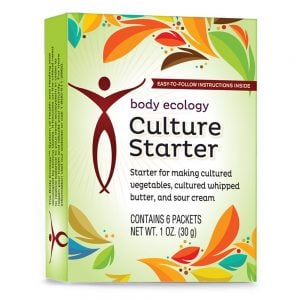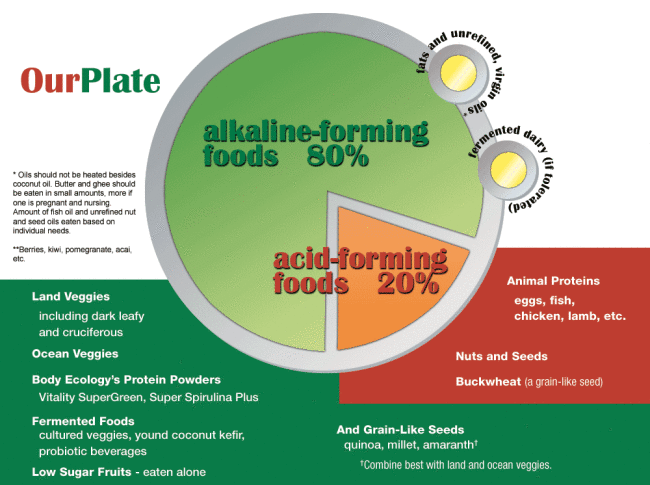Your Preconception Diet Can Shape Your Baby’s DNA
In 2003, researchers found that the diet of a mother mouse can change the color of her baby’s fur. This hinted at what scientists would later discover: Diet—before conception—can permanently change how DNA is expressed. (1)
Researchers have now found evidence in humans that a mother’s diet before pregnancy can permanently affect many aspects of her child’s health—throughout his or her lifetime. (2)
Researchers from the MRC International Nutrition Group investigated a community of over 2,000 women living in a rural area of The Gambia. Following 84 women who conceived during the peak of the rainy season and 83 women who conceived at the peak of the dry season, they found that the mother’s diet before conception profoundly affected her child’s DNA.
Senior author of the study, Dr. Branwen Hennig at the MRC Gambia Unit and the London School of Hygiene & Tropical Medicine, explains:
“Our results represent the first demonstration in humans that a mother’s nutritional well-being at the time of conception can change how her child’s genes will be interpreted, with a life-long impact.”
How Does Diet Affect DNA?
What you eat before conception can affect your baby’s DNA. Support your baby’s health before pregnancy by eating 80 percent nutrient-dense plant foods at each meal, including cultured vegetables made with the Veggie Culture Starter.
DNA is our genetic code. It is the blueprint upon which the body is built. But in addition to the genetic code, there are switches that sit on top of the genome—controlling the expression of DNA.
Even though a baby directly inherits her genetic code from both parents, how these genes are expressed is up to the surrounding environment. This includes stress upon the mother during pregnancy—and it also includes diet.
Key nutrients tag regions of the gene and can silence certain genes. This regulation of gene expression is called methylation and is essential for tissue repair and new tissue generation.
The nutrients involved in this process are:
- Folate
- Vitamin B2, or riboflavin
- Vitamin B6, or niacin
- Vitamin B12
- Choline
- Betaine
Methylation is especially important for keeping the genetic code intact as cells multiply.
Professor Andrew Prentice, Professor of International Nutrition at the London School of Hygiene & Tropical Medicine, points out that:
“The methylation machinery can be disrupted by nutrient deficiencies and … this can lead to disease…Pre-conceptional folic acid is already used to prevent defects in embryos. Now our research is pointing towards the need for a cocktail of nutrients, which could come from the diet or from supplements.”
Preconception Nutrition: Which Foods Nourish Mother and Baby?
Whether you are planning on getting pregnant, are already pregnant, or would like to nourish your toddler—foods that equip the “methylation machinery” to do its job will ensure that your baby has every opportunity to thrive.
Remember, the best time to begin nourishing your little one is before conception.
While the MRC Gambia study does not list what mothers ate, it does tell us that they conceived either at the peak of the rainy season (when dietary options are limited) or at the peak of the dry season (the harvest season, when high-protein foods, like fish and beef, are consumed regularly).
In this study, research tells us that the healthiest babies were conceived during the rainy season—when food was scarce. This detail has surprised researchers: Wouldn’t the healthiest babies be born to mothers who ate plenty of protein? (3)
One study notes that during the rainy season, many greens containing folate and betaine—like cassava leaves and spinach—are consumed. Both folate and betaine support “methylation machinery,” suggesting that methylation may be more important than overall energy consumption. (4)
The latest scientific literature tells us that when it comes to making a healthy baby, the smaller nutrients in food trump overall protein or carbohydrate content.
In other words, it’s not quantity that matters, it’s quality.
While this may not seem like news at first glance, we are now learning exactly which nutrients support a baby’s lifelong energy and why.
The Right Diet for Creating a Healthy Baby
The Body Ecology Diet focuses on nutrient-dense plant foods, like:
- Non-starchy vegetables, including leafy greens
- Ocean vegetables
- Cultured vegetables
According to the Principle of 80/20, only 20 percent of your plate should be animal protein, like muscle meat.
Here is the thing about muscle meat: Muscle meat is rich in amino acids that ultimately tax your “methylation machinery.”
In other words, the more muscle meat that you eat, the more you need key methylation nutrients. No wonder research from The Gambia has shown that mothers give birth to healthier babies when they eat less protein and more nutrient-rich plants and vegetables.
What To Remember Most About This Article:
A mother’s diet before conception can permanently change how her baby’s DNA is expressed. While a baby inherits genes from both parents, the surrounding environment determines how the genes are expressed. Influences include stress during pregnancy and especially an expectant mother’s diet. Key nutrients are necessary to regulate gene expression in a process called methylation, which facilitates the repair and regeneration of healthy tissue.
Essential methylation nutrients include folate, riboflavin, niacin, vitamin B12, choline, and betaine.
Nourishment for a healthy baby starts far before conception. Research points to the fact that it is the quality of a diet that matters, not the quantity. According to research, mothers who ate less protein and consumed more nutrient-rich plants and vegetables gave birth to healthier babies. The same principles are found in the Body Ecology Diet that focuses on 80 percent ocean vegetables, cultured vegetables, and non-starchy vegetables with 20 percent protein at each meal.
- [product id=”22″]
- [product id=”1″]
REFERENCES:
- Waterland, Robert A., and Randy L. Jirtle. “Transposable elements: targets for early nutritional effects on epigenetic gene regulation.” Molecular and cellular biology 23.15 (2003): 5293-5300.
- Dominguez-Salas, Paula, et al. “Maternal nutrition at conception modulates DNA methylation of human metastable epialleles.” Nature communications 5 (2014).
- Waterland, Robert A., et al. “Season of conception in rural gambia affects DNA methylation at putative human metastable epialleles.” PLoS genetics 6.12 (2010): e1001252.
- Bates, C. J., N. J. Fuller, and A. M. Prentice. “Folate status during pregnancy and lactation in a West African rural community.” Human nutrition. Clinical nutrition 40.1 (1986): 3-13.










